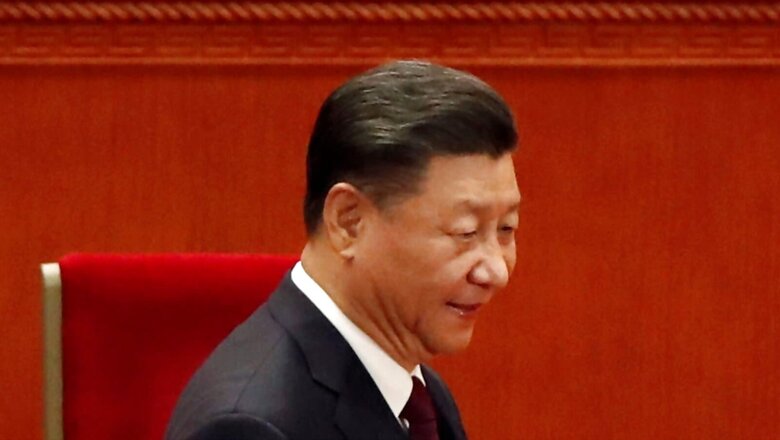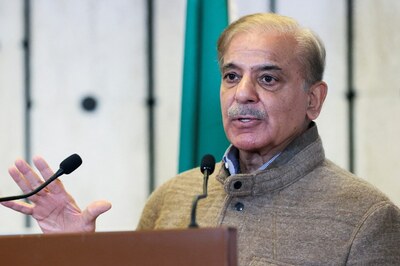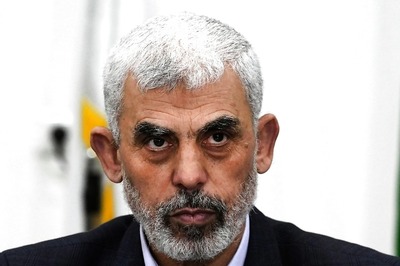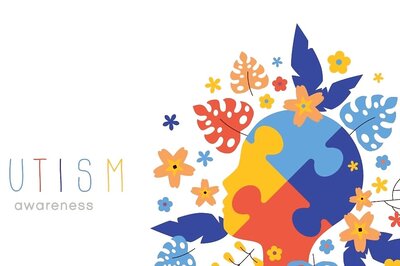
views
One of the most important developments of the decade of 2000s was the rapid growth of China’s trade, investment, and official financial flows to Africa. Although there was a tremendous growth in China’s trade and investment links with the African continent, the most striking feature of the China–Africa relationship was Chinese finance for infrastructure development. China committed nearly US $153 billion to African public sector borrowers between 2000 and 2019. Chinese finance to Africa was predominantly channeled through the China Development Bank and the China EXIM Bank, and Chinese companies built vital infrastructure including roads, railways, ports, etc.
China’s growing footprint in Africa caught the attention of researchers and journalists alike and the literature on China’s Africa engagement grew rapidly. However, most studies presented a dichotomous understanding of China’s impact on African countries by presenting China either as a ‘threat’ or as an ‘opportunity’ for Africa. An objective view of China’s role in Africa has largely been missing.
ALSO READ | Why China’s Quest to Dominate Global Tech Standards Looks Far-fetched
On the one hand, there are those who believe that China is playing an important role in African development through its contribution to infrastructure development in a continent where shortage of infrastructure facilities is a major barrier to growth. On the other hand, are scholars who have been very critical of China’s resources for infrastructure deals in Africa and the opacity of Chinese lending practices and have accused China of ‘Debt Trap Diplomacy’. Experts have also highlighted the problem of China’s ‘hidden debt’ because a significant portion of the Chinese lending to African countries is not reported. According to a recent study by AidData, China’s underreported debts to lower- and middle-income countries are to the tune of US $385 billion.
Notwithstanding the growing criticism of China’s lending practices, African leaders viewed China as an important ally and welcomed Chinese finance in infrastructure projects and the nature of Chinese engagement, often described as ‘win-win partnership’. For instance, Paul Kagame, the President of Rwanda, has often defended Chinese engagement in Africa. In his words, “China relates to Africa as an equal partner”.
However, in the aftermath of the COVID-19 pandemic, most African countries are experiencing mounting debt burdens. According to International Debt Statistics 2022, published by the World Bank, Sub-Saharan Africa’s external debt stocks increased by 43 per cent from US $492 billion in 2016 to US $702 billion in 2020. Further, the report observes that the Sub-Saharan region, led by Angola, has witnessed the sharpest rise in Chinese debt. Though the pace of debt accumulation has slowed since 2018, Sub-Saharan Africa accounts for 45 per cent of end-2020 obligations to China.
Rising debt burdens and faltering economic growth have left fewer options available for African countries. Many African countries have now resorted to cancelling Chinese projects. Some have also cited poor workmanship and unfair deals as well. Also, African leaders are more critical of Chinese lending practices today. In April 2020, then Tanzanian President, John Magufuli, described the US $10 billion worth Chinese port project in Mbegani Creek signed by his predecessor, Jakaya Kikwete, as a project that could only be accepted by a ‘drunkard’.
In 2020, the Kenyan High Court cancelled the railway contract between the Kenyan government and China Road Bridge Corporation as it failed to comply with the country’s procurement rules. This year Ghana cancelled a Chinese project to develop intelligent traffic management system for its capital, Accra, out of concerns over the Chinese company’s quality of work. Felix Tshisekedi, the President of the Democratic Republic of Congo, has also called for a review of the mining contracts under the Sicomines contract—then dubbed as the ‘deal of the century’—which were signed in 2008.
African leaders are also witnessing growing criticism of China’s infrastructure projects and its lending practices with their countries. African activists are increasingly voicing their concerns over flouting of environmental norms and national laws, opacity of Chinese contracts, poor quality of Chinese infrastructure projects and corruption. Thus, the era of Sino-optimism in Africa may be finally getting over.
What does this mean for China which has tried to project its engagement with Africa as a partnership that is based on equality and mutual respect? Although China has emerged as the largest economic partner for most African countries, Africa’s share in China’s trade with the world is just 4 per cent. Similarly, Africa also accounts for a small part—only 2.9 per cent—of Chinese foreign direct investment flows. Thus, Africa’s importance for China is more than just economics. African countries play a very important role in maintaining China’s international image and its global leadership ambitions.
ALSO READ | India’s New Game Plan to Tackle China Challenge is a Mix of Bluntness & Studied Reticence
Given the importance of Africa in China’s foreign policy, China is likely to course correct. Some changes have already been made. Chinese lending to Africa has decelerated significantly since 2018 and its earlier push for building large infrastructure projects led by Chinese public sector enterprises in Africa is likely to take a backseat. However, the role of Chinese private sector in Africa, another important feature of China’s growing economic footprint in Africa often ignored by scholars, is likely to grow. But given Africa’s debt burden, China will largely be judged on its ability to prevent a debt crisis in Africa by debt restructuring and relief.
The African continent has historically been a battleground for power and given the rise in strategic rivalry between China and the West, China is likely to encounter a more aggressive EU and US policy in Africa. The EU’s Global Gateway Initiative, announced in September 2021, is designed to challenge Chinese hegemony in the global infrastructure and counter its Belt and Road Initiative (BRI). Unlike the BRI, the Global Gateway Initiative is likely to lay special emphasis on transparency, environmental and social sustainability. The US-led Build Back Better Initiative also seeks to counter China.
Thus, given the growing criticism of China within African countries and the re-entry of the West in the global infrastructure scene, China will need to address all the concerns associated with its Belt and Road Initiative to maintain the goodwill it currently enjoys in Africa.
This article was first published on ORF.
The author is Fellow with the Climate Change and Development Initiative. The views expressed in this article are those of the author and do not represent the stand of this publication.
Read all the Latest News , Breaking News and IPL 2022 Live Updates here.


















Comments
0 comment